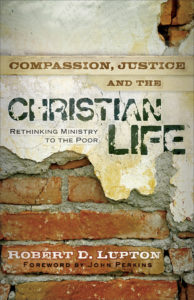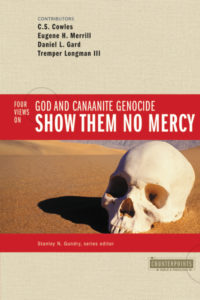This article is part of a progression
I remember sitting in one of my ministry classes discussing whether unrepentant homosexuals should be allowed to remain part of local churches. Most of the class argued that they should not, but a few of us were less hesitant. This post (which is part one of two) will examine the most used biblical references for church discipline and excommunication and discuss what they should mean to us today. For a different perspective on the topic within this post see: Almost Heresy and Church Mystic.
It’s interesting. This has been a planned post since May 15th, and just the other day, McArthur released this video- https://www.youtube.com/watch?v=tWYAwknMlH4 on how parents should react should their child reveal to them that they are homosexual. It’s saddening to think of any parent having nothing to do with their child. To go so far as to isolate them, refuse to even eat with them. Unfortunately, though, this is the sad reality for many homosexual children of devout Christian parents.
Why is this the case? These parents think that they’re following the commands of God. And, in a way, potentially they are. There are references in scripture to the church (never families, though) distancing themselves from those who claim to be Christians but do things that Christians “ought not to do.” The questions then become, how relevant are these demanding passages to Christians today (because certainly not all regulations even in Paul’s writing are relevant to Christianity today), and what are the best ways to carry out these principles (whether relevant or not).
I will concede that church discipline and excommunication is near unheard of in our modern society. There are instances of it happening, though they are rare. Sadly, when they do happen they often leave irreparable scars between not only those involved directly but bystanders who are close to both the church and those who are being disciplined (I have seen and heard of this first hand). There are many obstacles to navigate around when trying to enact church discipline, with the last resort being excommunication, but it’s not always done with the best tact or grace, and therefore hearts are often broken in the process. For reasons such as this, is church discipline something that the church as a whole should even engage in anymore? And, on a smaller scale, is it the model that parents should use with their children when dealing with issues such as homosexuality (which has become the poster boy for parents isolating their children)?
For the purpose of this mini-series, we will focus on two specific instances in scripture of church discipline and excommunication. The first we will address is from 1 Corinthians 5 where Paul is writing the church in Corinth to address what to do with a man claiming to be a Christian who is engaging it adulterous incest with his father’s wife, whilst his father is still alive. Paul condemns the church for allowing this man to be a part of the church and tells them to kick him out and to not eat with him. An exegesis of the text is required to figure out not only what this meant to the church in Corinth, but what it means for us today.
The first thing that must be noted is that Paul is adamant about who is to be judged. It seems that the readers previously misunderstood him and thought to judge all, but Paul makes it clear that only those in the church may be judged. There is no way to rid your life of these types of people in the world outside the church.[note]David E Garland 1 Corinthians. Baker Exegetical Commentary on the New Testament(Grand Rapids, Baker Academic, 2003) 185,186,190.; Gordon D. Fee, The First Epistle to the Corinthians. The New International Commentary on the New Testament. (Grand Rapids, W.B. Eerdmans Pub, 1987) 221.[/note] It should be noted that in order for this to be valid, the member must actually be engaging in the sin that is being condemned and not just said to be.
What, though, is the purpose of kicking out a fellow believer who is engaging in sin? Essentially there is one reason- it protects the church. Removing the brother who is engaging in sinful actions allows the community to not be seen like everyone else.[note]Garland, 1 Corinthians, 185.[/note] The laws of the Old Testament were in place to set apart God’s chosen people, to show how they were different. The idea of excommunication was viewed similarly. Doing this would bring the church back into a proper relationship with Christ.[note]Preben Vang, 1 Corinthians. Teach the Text Commentary Series. (Grand Rapids, Baker Books, 2014) 67.[/note] Essentially, it’s about showing the people of the world that moral evil is not allowed within the bounds of the church.[note]Gordon, First, 67.[/note]
Paul then goes on to list a vice list of those whom should be removed from the church. While not exhaustive, it is rather inclusive.[note]Marion Soards, 1 Corinthians, New International Biblical Commentary (Grand Rapids, Baker Book, 2011) 116; Fee, First, 225; Paul doesn’t want only sinless people in the church, though, according to Fee. (224)[/note] This list is similar to others written around the time, but is most likely directed at those living in Corinth.[note]Ibid 120.[/note] What are some of the other things that Paul includes in this list? Greed.[note]Which was not necessarily sensual.[/note] Idolatry. Drunkenness.[note]Garland 1 Corinthians, 185.[/note] I found an interesting commentary on this at Patheos. (Which came in light of the McArthur video posted earlier). It goes well with this piece on Biblical literalism. The point? There are some parts of the Bible that we refuse to take literally because they are difficult for us, or those we love. The parts that we choose to ignore are nestled right up next to the parts we use to most harshly against others as if they were a momma duck sitting on her eggs.[note]There are ducks waddling around below me as I write this. Ignore the silly metaphor if you wish.[/note] No church can use this passage as justification for disciplining someone based on sexual activity (whether hetero or homo) without also disciplining those who live in greed, or idolatry, or drunkenness; or abuses or cheats people. Those are all clearly spelled out as reasons to not associate with a brother, right along with sexual sins.[note]“I meant that you are not to associate with anyone who claims to be a believer yet indulges in sexual sin, or is greedy, or worships idols, or is abusive, or is a drunkard, or cheats people” (1 Corinthians 5:11 NLT)[/note]
But… But… But… The other sins are less easily defined; they’re less easily known; they’re just…. different. Are they different, or are they inconvenient because we know they relate to all of us? All of us are greedy; all of us worship idols occasionally; all of us are abusive; all of us cheat people.[note]Not all of us are drunkards, some people have never been drunk. But you get the point.[/note] “Yeah we all do those things, but we aren’t living in those things. We recognize they’re wrong, and may make mistakes from time to time, but we aren’t unrepentant about such things.” If someone claims they are unable to tithe because they cannot afford it are they not worshipping money over God? If someone eats more than their fill simply because they want to, is that not a form of greed? Are we to remove all of these people from our fellowship, as we do to those who may indulge in sexual sin?
I argue that no church would ever do that. And yet they use the same verse to justify removing people who engage in sexual sin from their midst. This inconsistency, often called hypocrisy, is another thing we must address when reviewing this text. It’s no doubt that Christianity today is seen as one of the most hypocritical people groups (especially within American culture). And it’s for reasons like this. It’s said that the church was losing their testimony in the city because of the immorality of the church.[note]Warren W. Wiersbe, Be Wise: Discern the Difference between Man’s Knowledge and God’s Wisdom: NT Commentary, 1 Corinthians. (Colorado Springs, David C. Cook, 2010) 76.[/note] This is because everyone in the church knew of the sin, but nobody did anything about it.[note]Ibid 73.[/note]
What is Paul’s solution to this problem? To cut ties with the person. There is much speculation as to the degree the ties should be cut. Some think the restriction (especially that on dining) only includes Christian fellowship (including the Lord’s Table) but not about the private lives of the individual church members.[note]Fee, First, 226[/note] Others, on the other hand, view it as all interaction between members of the church and members that have been removed.[note]Wiersbe, Be, 76; Soards, 1 Corinthians, 116; Soards goes on to clarify that it’s only limited prolonged or regular contact or interaction, and not all forms (119).[/note] The difference comes from the understanding of eating. In this culture, dining with someone signified social approval, closeness, and inner circle friendship.[note]Vang, 1 Corinthians, 67.[/note] This has caused most scholars to side with the view that all interaction is forbidden, and some churches have adopted this view.[note]I know of a church who forbid its members to attend the wedding of two young individuals who had been removed from membership. Some of the members were the man’s parents.[/note]
The problem with these actions today is that forbidding contact between those within the community and those removed from it, especially with such blatant indiscretion and cherry picking of what offenses are worthy of removal, is harming the testimony of the church in the city. It’s no longer the fact that sinners are allowed within the church that hurts the church’s testimony; it’s the idea that the church is full of perfect people. Failure to recognize and fix this will ultimately be the organized church’s downfall.[note]Smaller house churches thrive because they allow people to just be without fear of discipline or being judged.[/note]
Two final things must be noted addressing this passage. The first, is the honor-shame societies make no sense to us.[note]Vang, 1 Corinthians, 71.[/note] We’ve discussed before that the world of the Bible was very much an honor-shame society.[note]Quick recap: in ancient times one’s worth was evaluated by how others saw you. Things happened, usually, interactions with others, that either brought you honor or shame. In a way, it was almost like a currency. Things could gain you honor or lose it (losing honor was the same as gaining shame). The view others had of them was more important in this society than it is today even as it played heavily into one’s social and economic status.[/note] There’s no doubt that being removed from one’s fellowship was a shame-inducing act. To lose the ones you (presumably) loved most dearly and no longer be allowed to associate with them would have lost you much honor. In this, it seems very fitting that those who were excommunicated did everything they could to get back into good graces with the church, in order to restore their honor. It was integral to their personhood. In today’s world, though, we care much about what people think of us, yes, but in much different ways.
Our worth is not tied to our level of honor or shame. Being removed from a community would not be the most shameful thing to us that would lower our status in the eyes of others and cause us to do everything we could to get back in. To the contrary, most people excommunicated (or otherwise disciplined by the church) become embittered and wish to have little to no interaction with the church in the future. In other words, the very actions that were meant to restore people to Christ are doing the opposite in today’s society.((This happens not only to those who are disciplined but to those who witness it. I know a family who loves God with all their heart but has a hard time with churches because of the way a church handled a situation with its members whom they loved dearly.)) That’s a problem, and that’s something that needs to be fixed.
Lastly, most historians and commentators agree that this situation (a man sleeping with his husband’s wife, while he arrives) is something that not even the society at large had much tolerance for.[note]Garland, 1 Corinthians, 191; Vang, 1 Corinthians, 71.[/note] There’s a rather large gap to be breached and understood here. Whilst, yes, this is only one instance that is being discussed, we must figure out how it applies to all other instances. Is it only things that society at large also condemns that warrant one being expelled from the community? This would show the city that the church isn’t a place where all things are permitted.[note]After all, there is a running assumption throughout history that the church is a cover up for massive incestuous orgies.[/note] Or is it that people engaging in all things listed in v. 11 are required to be removed from the fellowship? After all, purging the evil from within (as Paul states) is a common idea within Judaism (which is why Jesus’ example of church discipline mixes various Jewish traditions).[note]Garland, 1 Corinthians, 191; more on this will come when we discuss Matthew 18 in the next section.[/note]
Most scholars would argue that it’s definitely the second, but most churches fail to live up to this. Some have gone so far as to say that until we move back to this, the church will remain only a social gathering.[note]Vang, 1 Corinthians, 67.[/note] We’ve already discussed how that might not be such a bad thing. The problem with that view, though, is it’s not sustainable the way it’s being practiced. The only way for church discipline to keep the church alive is to be enacted for all whom it is required according to the scriptures. Until we are able to do that, no church discipline should be enacted because it is doing more harm to not only the church’s witness but individuals relationships with Christ.
As the only representations of Christ’s love on earth, when people see the church (and it’s members) disciplining in only the ways that are convenient, they are given an incomplete picture of Christ’s love- namely that some are able to do bad things whilst others are not, depending on what the bad things are, and that’s simply not the case. Christ’s love is for all. No matter who; no matter what; no matter when. There’s no escaping that, and anything that hinders that is a false representation of Christ’s love and needs to be handled in order to do no more harm to this world than it already has.
(In case you haven’t figured it out since it’s not good for the church to do this, it’s most assuredly isn’t good for a family to do this).
Thoughts, comments, questions, concerns? Share in the comments below!






2 Responses
Really interesting article. You make a great point on being consistent with scripture. I would just say that maybe you should reconsider your stance as it pertains to those who are unrepentant, because there is a big difference between someone who claims to be a Christian yet still lives in unashamedly open rebellion and a Christian who is trapped in sin, yet grieves over it and seeks help and community. Even Paul himself says that he does the things he shouldn't and doesn't do what he should. Following some of your logic, Paul would then have to kick himself out based on 1 Corinthians 5. I don't think thats true. I think Paul here is referring to chopping down those trees that are nothing but bad fruit as opposed to a tree with good fruit and a few rotten ones. Like I said though, I think your article does bring some great insight into our need for more consistency and less cherry-picking. I was also glad to see the part on the honor/shame culture of scripture that is rarely ever considered in our exegesis!
Thanks for replying. I would like to address a few things with you though. First of all, nobody knows whether someone is unrepentant but God. Repentance is a state of the heart that only God can see, so no man is able to judge whether someone else is repentant or not. Second, very few people produce only bad fruit, and even being unrepentant of sins doesn't mean you're producing purely bad fruit. Third, Paul's discourse on doing things he doesn't want to do is most likely written about his life before seeing Christ, so doesn't have much bearing on the life of a Christian. Lastly, how would my argument mean kicking Paul out based on 1 Cor 5? I'm not arguing for kicking anybody out.
Comments are closed.